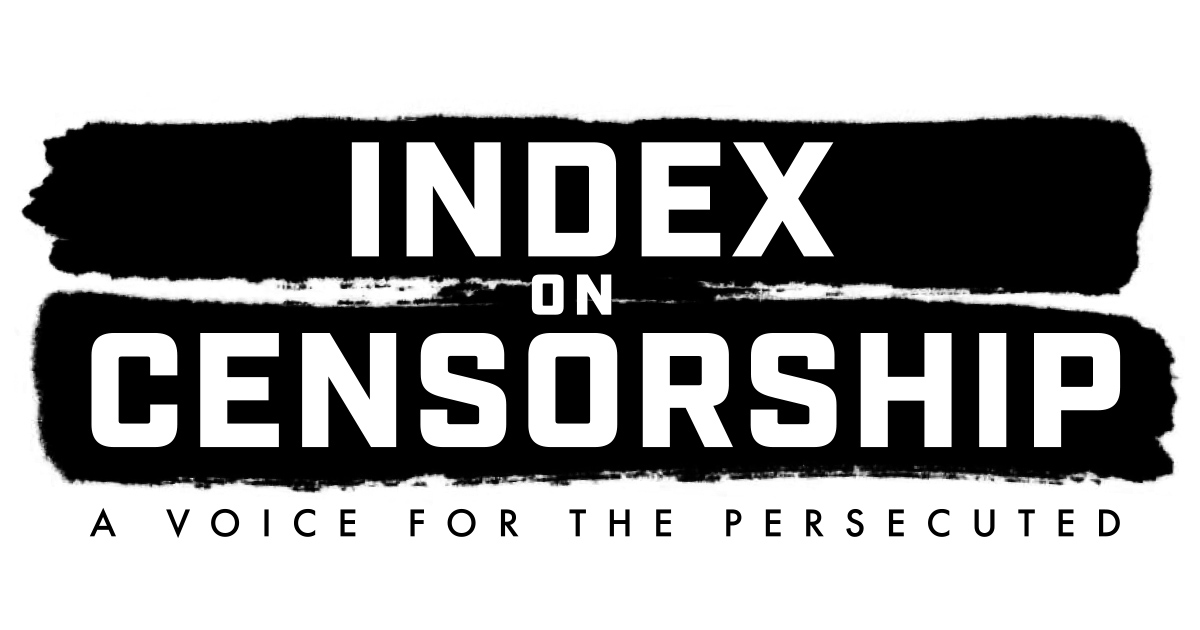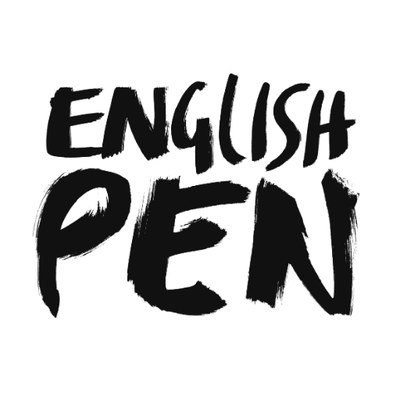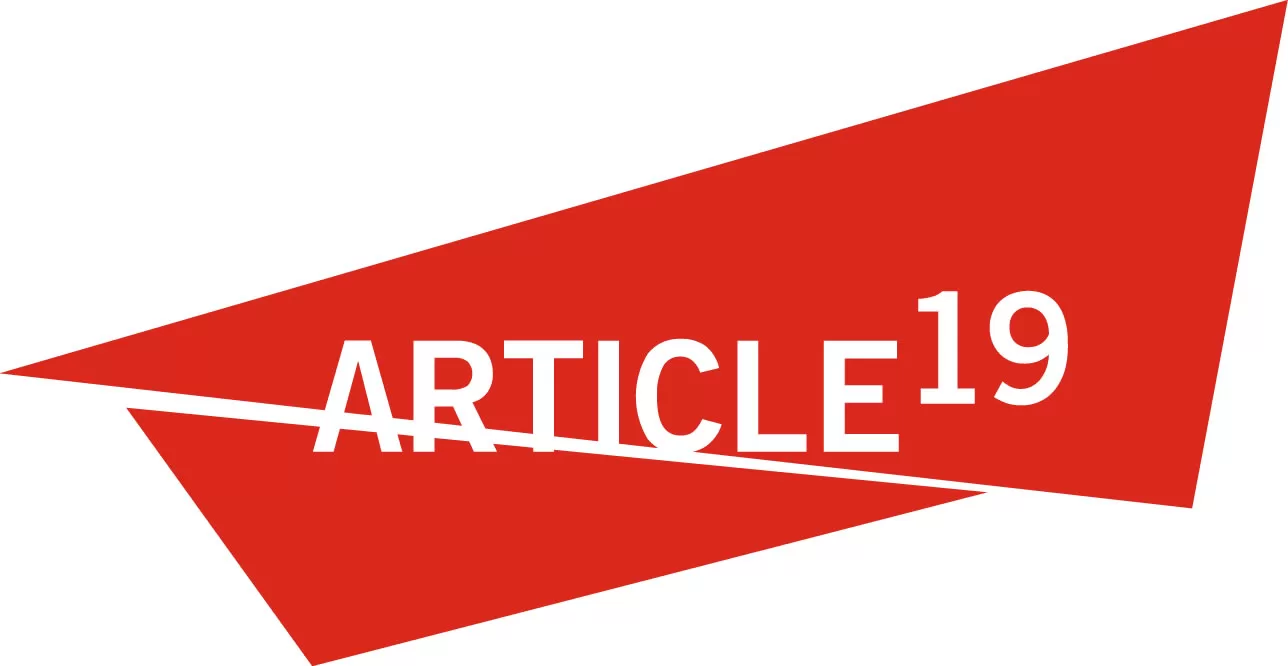9 Sep 2022 | Ruth's blog, United Kingdom
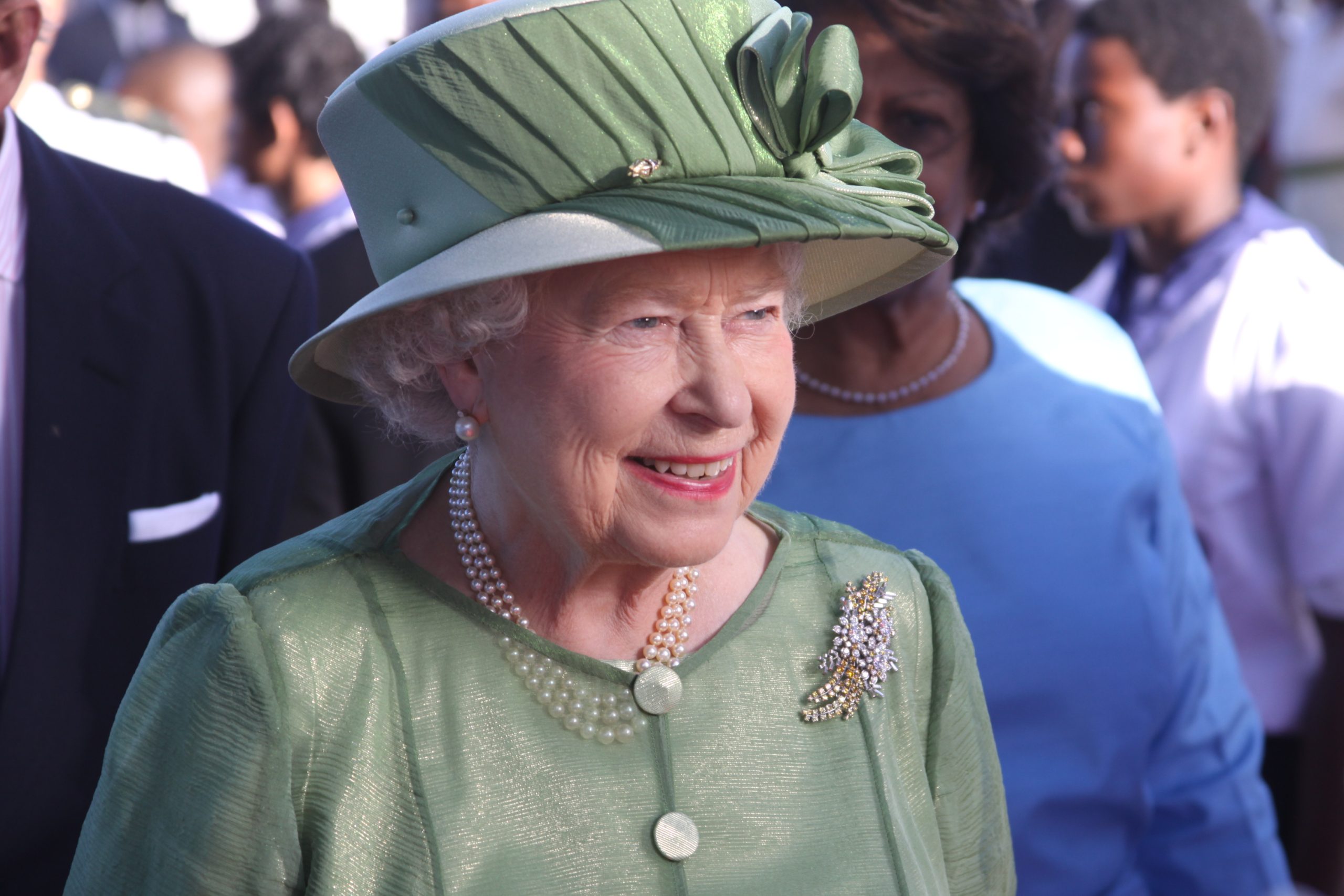
Queen Elizabeth II has died at the age of 96. Photo: Kenroy Ambris/Commonwealth Secretariat/Flickr
Index is definitely not a traditional vehicle to feature an article discussing the British royal family. However, today I am going to abuse my position as chief executive in order to honour the life of one of the most dedicated public servants a democracy has known. A monarch whose efforts from the day she ascended to the throne, until her passing on Thursday afternoon, strove to promote and protect our shared values.
Her Majesty Queen Elisabeth II has passed away, at the age of 96, having served on the throne for over 70 years. Whether you are a monarchist or a republican it cannot be denied that Her Majesty was a formidable head of state. A stabilising force through many periods of global turmoil from World War II and the Cold War to the current unsettled world we find ourselves in.
On a personal note, I feel a little shaken today, knowing that the only head of state I have known has gone. May she rest in peace.
The United Kingdom now enters a period of mourning. However Index as a global organisation will continue to campaign for freedom of expression. Ensuring that during a time when the news around the world will be focused on one story the voices of dissidents will continue to be heard.
5 Aug 2022 | Afghanistan, Belarus, Brazil, Indonesia, Kenya, News, Poland, Russia, South Africa, United Kingdom
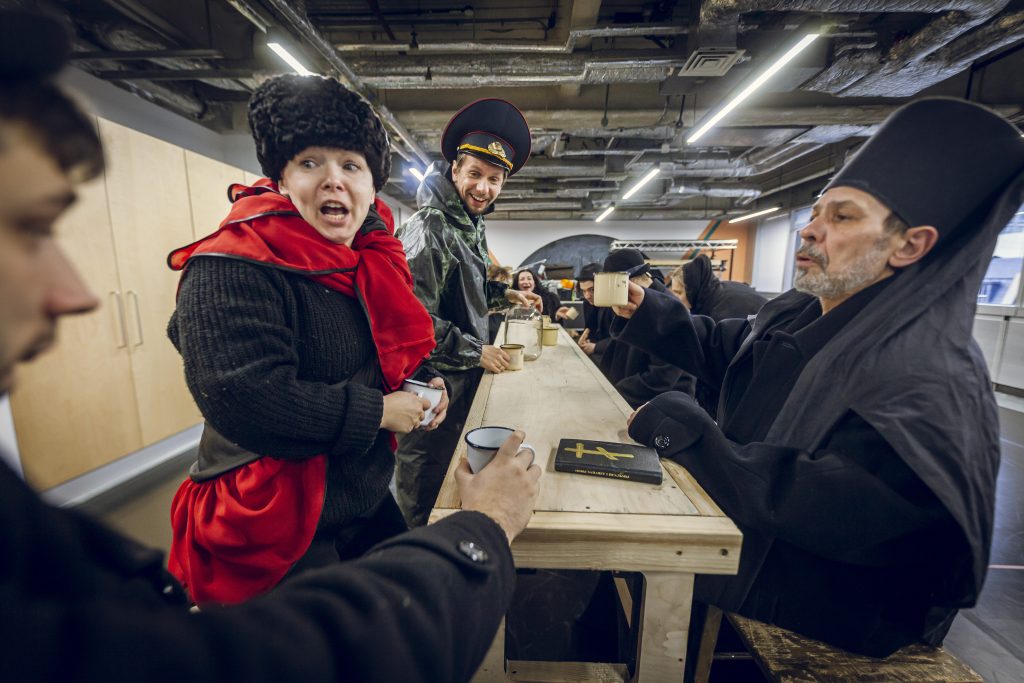
Belarus Free Theatre's Dogs of Europe in rehearsal. Photo: Mikalai Kuprych
Index on Censorship has always supported the theatre of resistance, and our Winter 2021 magazine even had this issue as its main theme.
In Belarus, for example, organisations such as Belarus Free Theatre are crucial to fighting Lukashenka’s ruthless regime. Playwrights in Turkey have also faced government censorship throughout history and have to find their way around it.
In the UK, theatre censorship was officially abolished in 1968, putting an end to over 200 years of control by the Lord Chamberlain. Countries like Brazil are also making things harder for the arts and theatre sector through a kind of financial censorship linked to ideological values.
Now, we explore the universe of theatre and censorship, looking back at pieces published in our magazine.
Staging dissent: When a British prime minister was not amused by satire, theatre censorship followed. We revisit plays that riled him, 50 years after the abolition of the state censor
In this piece published in 2018, actor and director Simon Callow revisited the struggle to officially abolish censorship in theatre in the UK, which happened in 1968, after lasting for almost 200 years.
He explains why vigilance is still needed nowadays and writes about other forms of censorship, such as self-censorship.
Theatre Censorship
In August 1980, Anna Tamarchenko wrote a piece about the strict and recurrent censorship in Russian theatre.
She exemplifies her point of view citing Russian plays that only hit the stage years after being written, such as Boris Godunov, first staged in 1870, 45 years after it was published. Alexander Pushkin, its author, had already passed away 30 years earlier.
“Under the Soviet regime censorship has gained new opportunities to exert pressure on theatrical life,” Tamarchenko wrote.
Alternative theatre
In this piece published in 1985, theatre critic Agnieszka Wójcik (pseudonym) dives deeply into the censorship and repression against student theatre in Poland, especially following the introduction of Martial Law in December 1981, when student theatre began to be considered a threat to public order.
“The repressions following December 13 therefore somehow 'objectively' defined the status of student theatre as suspect, if not downright illegal. After the banning of NZS (the independent student union) which had taken most student groups under its wing during the Solidarity period, they lost the foundations of their material existence,” Wójcik wrote for Index.
Why the Taliban wanted my brave mother dead…
For the 2021 Winter issue of Index magazine, Associate Editor Mark Frary reported on the play The Boy with Two Hearts, written by Afghan author Hamed Amiri and inspired by his memories of his mother’s campaigns for women’s rights and why they had to leave Afghanistan behind.
“When Hamed Amiri was 10 years old he watched his mother Fariba give a speech in his hometown of Herat, Afghanistan, speaking out for women’s rights and education and against the ruling Taliban. A day later, a mullah gave the order for Fariba’s execution and the family began a gruelling 18-month journey through Europe,” Frary writes.
Testament to the power of theatre as rebellion
In December 2021, critic, columnist and cultural historian Kate Maltby wrote about Belarus Free Theatre’s journey towards performing at the Barbican in London in 2022.
She talked to Nikolai Khalezin, playwright and journalist, and Natalia Koliada, theatre producer. Both founded Belarus Free Theatre in March 2005 and told Index about the rollercoaster they’ve been through after going into exile in order to escape from Lukashenka’s dictatorship.
“Since 2011, Khalezin and Koliada have held political asylum in the UK, a necessity for survival in the face of repeated harassment and imprisonment at the hands of Lukashenka’s regime”, writes Maltby.
Where silence is the greatest fear
Published in December 2021, this piece written by Issa Sikiti da Silva, Index contributing editor based in West Africa, looks at the censorship suffered by Kenyan theatre and how it has dragged under a series of corrupt leaders.
He also investigates the legacy left by colonial Britain in Kenya and how it still impacts theatre in the country.
“There was hope that Jomo Kenyatta’s ascension to the presidency in 1964 would help heal the wounds inflicted by the British and pave the way to tolerance, social justice, freedom and prosperity,” Da Silva writes.
God waits in the wings…ominously
Brazil is also home to its share of theatre censorship and free speech issues. In December 2021, Index’s editorial assistant Guilherme Osinski and former associate editor Mark Seacombe reported on a presidential decree that art must be sacred. They explored how it has affected Brazilian theatres across the country.
Osinski and Seacombe interviewed two Brazilian theatre companies, which shared their thoughts on president Jair Bolsonaro's approach to art in Brazil, comparing the current situation to when the country faced a bloody dictatorship from 1964 to 1985.
“While the overt and ruthless censorship of the military dictatorship that ended in 1985 is now history, theatre today has to comply with a nebulous concept known as “sacred art” or be starved of public funds”, writes Osinski.
Desegregating the theatre
In August 1985, Professor Stephen Gray wrote for Index and explained how theatre in South Africa was shaped and controlled by the law, before this censorship was eventually relaxed and became less strict.
“Theatre itself is debate, and in South Africa, where sensitive issues ignite like flash-paper, to each show its own controversy," Gray writes.
Play politics: policing theatre in Indonesia
At the beginning of the 1990s, Indonesia’s government had promised more openness and freedom for theatre companies in the country. However, president Suharto closed the doors on Jakarta’s popular theatre and other plays began to be banned across Indonesia.
Andrea Webster reported on that issue for Index in July 1991, emphasising the ironies between Suharto’s speech for democracy and the bans and curbs on theatres.
“The ban occurred just over a month after President Suharto himself made an Independence Day speech on 17 August where he spoke of 'openness' and democracy, where 'differences of opinion had their place in Indonesian society,'” Webster wrote on the occasion.
Sending out a message in a bottle: Actor Neil Pearson, who shot to international fame as the sexist boss in the Bridget Jones films, talks about book banning and how the fight against theatre censorship still goes on
In June 2019, then editor in chief of Index on Censorship, Rachael Jolley, interviewed actor Neil Pearson about why governments fear books being published and how the fight against theatre censorship still goes on.
Among many things, they discussed self-censorship and the boundaries between a play which is acceptably controversial and unacceptably controversial.
“If you are genuinely against censorship, you have to be evenhanded against censorship. If your idea of freedom of speech is only allowing people to say what you already agree with, then Goebbels would have no problem with that definition of speech,” Pearson told Index.
'Humpty Dumpty has maybe had the last word...'
One of the biggest names in British theatre recently wrote for Index on Censorship. Sir Tom Stoppard, playwright and screenwriter and whose work covers themes such as human rights, censorship and political freedom, wrote in December 2021 on how the battleship over freedom still lies between the individual and the state.
20 Jul 2022 | News, Statements, United Kingdom
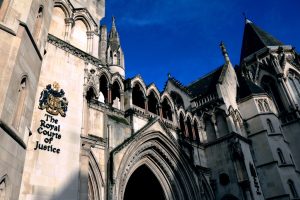
The Royal Courts of Justice, the scene for many SLAPP actions in the UK. Photo: PxHere
The co-chairs of the UK Anti-SLAPP Coalition welcome today’s announcement that the government intends to introduce a package of legislative measures aimed at putting an end to strategic lawsuits against public participation (SLAPPs) in the UK.
Noting that many of the UK Anti-SLAPP Coalition’s recommendations are reflected in the proposals, the co-chairs commend the government for clearly stating its intention to introduce primary legislation to address this issue. They are pleased to see it is a recognised priority to filter SLAPPs out of the court process as quickly as possible, regardless of the law weaponised by the SLAPP litigant.
At the same time, the co-chairs urge the government to be bolder in the measures aimed at tackling SLAPPs. In particular they point to the need for a higher threshold to filter out SLAPPs, the need to reduce and compensate SLAPP targets for the harm caused by the litigation process, and the need for measures - such as punitive damages - to deter SLAPP litigants from targeting public watchdogs with abusive legal threats and actions.
Charlie Holt, UK Campaigns Manager at English PEN, said: “The government’s proposals provide a solid foundation for tackling the problem of SLAPPs. With this framework in place, the Government must now ensure its proposed law is sufficiently ambitious to decisively tackle the problem of SLAPPs. This is a once-in-a-generation opportunity to protect public public watchdogs from abusive lawsuits - it’s crucial the government’s measures do not fall short of what is needed”
Susan Coughtrie, Project Director at the Foreign Policy Centre said: “Thankfully it is clearly no longer a question as to whether SLAPPs are a problem in the UK, but what measures will most effectively address them. We are highly encouraged to see the government's proposals, which reflect many of the UK Anti-SLAPP Coalition’s recommendations. How quickly these reforms will be implemented and their effectiveness in remedying the UK’s SLAPPs problem will be a key part of our continued focus on this issue.”
Jessica Ní Mhainín, Policy and Campaigns Manager at Index on Censorship said: “We welcome the government's intention to take action against SLAPPs and we look forward to working with officials to ensure that the strongest possible measures are adopted to ensure that public watchdogs are no longer subject to legal intimidation."
//ends//
Notes to Editors:
- The UK Anti-SLAPP Coalition is an informal working group, established in January 2021, made up of representatives from freedom of expression, press freedom, anti-corruption, and human rights organisations, as well as media lawyers, researchers and academics who are monitoring and highlighting cases of legal intimidation and SLAPPs, as well as seeking to develop remedies for mitigation and redress.
- The UK Anti-SLAPP Coalition’s submission to the Ministry of Justice’s SLAPPs consultation is available in full at https://fpc.org.uk/wp-content/uploads/2022/07/Joint-UK-anti-SLAPPs-Consultation-Submission.pdf


